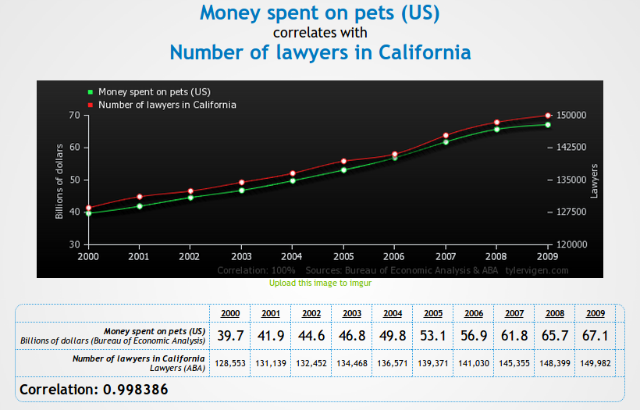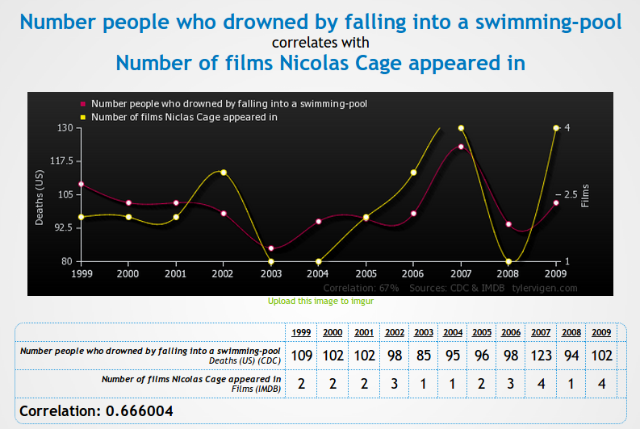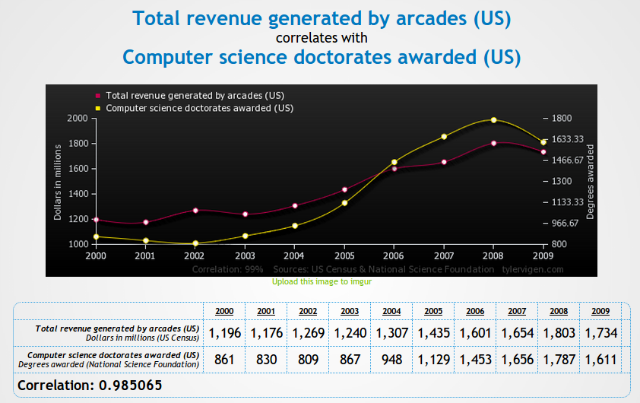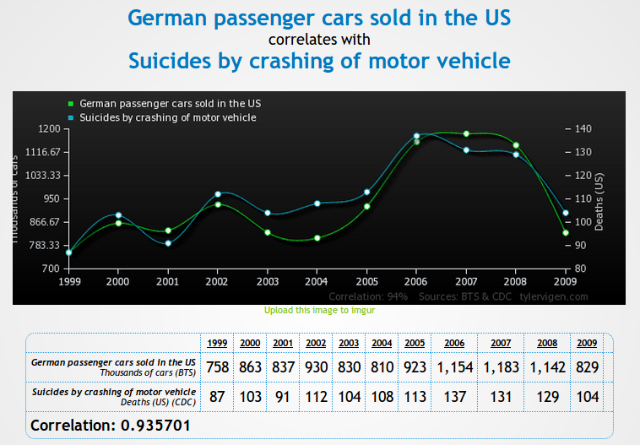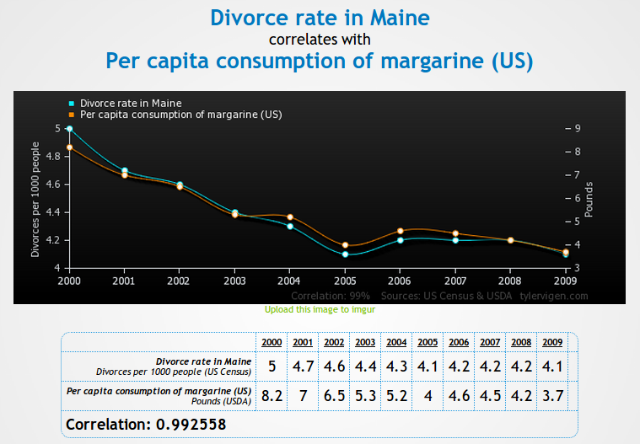Mark Twain once said, "There are lies, damned lies, and statistics." The point being that statistics can be used to prove anything, whether they're made up on the spot or generated by real data.
You don't have to take my word for it either, as a website called Spurious Correlations perfectly demonstrates how statistics can be bent and shaped to suit a particular bias. It turns out stats are actually rather useless.
The Website
Spurious Correlations is the brainchild of Tyler Vigen, a criminology student at Harvard Law School. Vigen is fascinated by empirical research, so he created a simple website dedicated to comparing variables, and how closely they correlate with each other.
There is a new one of these Spurious Correlations posted to the site every day, with over 24,000 posted to date. As well as those generated automatically, visitors can discover their own by selecting two different datasets to compare with one another.
Try it, you'll be amazed by how addicting it all is.
The Examples
What follows are five examples of Spurious Correlations chosen somewhat at random, although Nicolas Cage was always destined to make an appearance. Because he's Nicolas Cage.
Remember, none of these examples proves anything other than the fact that statistics can be used to draw conclusions that don't exist. But it's a lot of fun imagining the reasons why these stats match up.
The money spent on pets in the U.S. correlates with the number of lawyers in California. Are pampered pets suing their rich owners? Or is this just sheer coincidence?
The number of people who drowned by falling into a swimming-pool correlates with the number of films in which Nicolas Cage has appeared. Cage has some mad acting skills, but surely they don't lead to drownings.
The total revenue generated by arcades in the U.S. correlates with the number of computer science doctorates awarded in the U.S. There could conceivably be a link, but it's more likely that these two things just grew in popularity together.
The number of German passenger cars sold in the U.S. correlates with the number of suicides by the crashing of motor vehicles in the U.S. Does driving a German car lead to feeling depressed and suicidal? We suspect not.
The divorce rate in Maine correlates with the per capita consumption of margarine in the U.S. Perhaps the person in charge of the grocery shopping should have bought butter instead.
The Lesson
Spurious Correlations is, on the face of it, a nice little website capable of distracting you for a few minutes. But it's more than that. It's also a reminder that statistics should not be accepted on face value. Instead, they should be examined more closely to make sure they actually stack up.
We have probably all seen headlines on newspapers declaring a link between one random trend and another. Tabloid journalists and editors love these things, as they're a cheap gimmick guaranteed to sell newspapers. But they're often either innocently misleading, or totally, and intentionally, bogus. Bulls**t, in other words.
And now, thanks to Spurious Correlations, we know why this is the case.
Conclusions
http://youtu.be/g-g0ovHjQxs
Spend some time on Spurious Correlations and see which two completely unconnected data sets you can match up. And then come back here and tell us what you found. Don't feel guilty about spreading misinformation; tabloid newspapers do it every day of the week.
Image Credits: Simon Cunningham via Flickr, Ken Teegardin via Flickr, Ben Brown via Flickr



